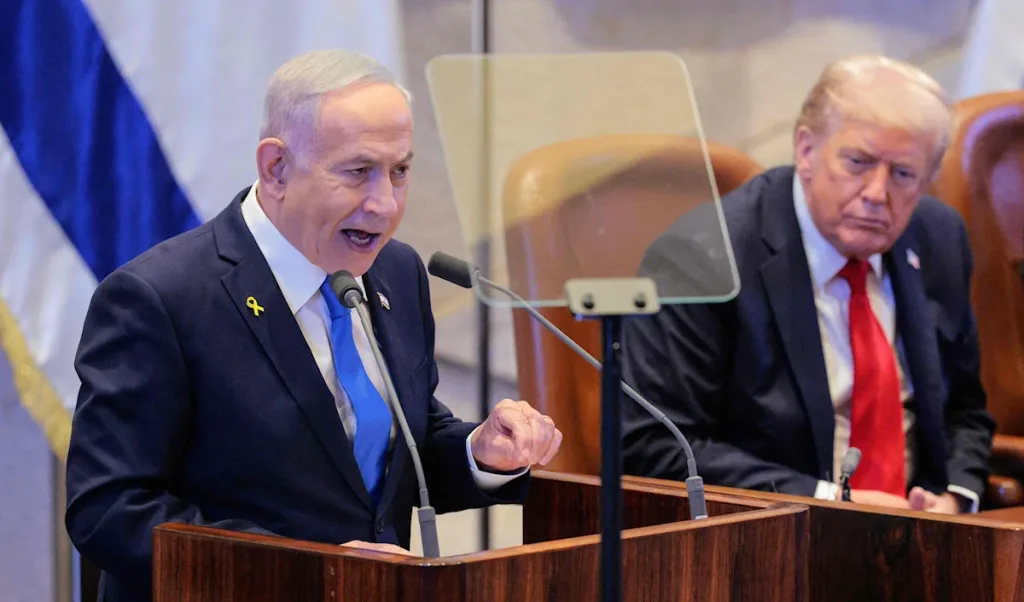
A special session of the Knesset, Israel's parliament, where Israeli Prime Minister Benjamin Netanyahu addressed the assembly while U.S. President Donald Trump was present. The event took place on October 13, 2025, in Jerusalem. Photo: AFP.

Orinoco Tribune – News and opinion pieces about Venezuela and beyond
From Venezuela and made by Venezuelan Chavistas

A special session of the Knesset, Israel's parliament, where Israeli Prime Minister Benjamin Netanyahu addressed the assembly while U.S. President Donald Trump was present. The event took place on October 13, 2025, in Jerusalem. Photo: AFP.
By Qassem Qassem – Oct 17, 2025
Last year, the Israeli cabinet approved Netanyahu’s “The Day After” document which outlines the occupation’s immediate objectives for Gaza after the ceasefire. Al-Akhbar has obtained a copy of the paper and discloses hereinafter its main points that revolve around destroying Hamas and the Islamic Jihad’s military and governmental infrastructure, securing the return of hostages, and neutralizing threats from Gaza.
Security measures
Israel will indefinitely retain freedom of action across Gaza to prevent the resurgence of “terrorism”. The security zone along the Gaza–Israel border will remain in place as long as needed. Tel Aviv will maintain control over the “Southern Barrier” on the Gaza–Egypt border – including Rafah – to prevent the regrouping of militant elements, in cooperation with Cairo and Washington. Israel will also control all land, sea, airspace, and communication channels in Gaza and the West Bank to hinder any attempt at strengthening what it refers to as “terrorist” individuals. Gaza will be fully disarmed, leaving only forces necessary to maintain public order, under Israel’s supervision.
Israeli Withdrawal, Captive for Prisoners Swap, and Entry of Aid: What’s in the Gaza Ceasefire Deal?
Civil administration
Gaza’s civil administration will be managed by local officials who have no ties to states or groups deemed as “terrorism funders or supporters” by Tel Aviv – such as Qatar or Turkiye. Israel will implement a counter-extremism program across Gaza’s religious, educational, and social institutions, backed by Arab states that have experience in combating extremism. It will also shut down UNRWA, which it accuses of involvement in the October 7 attacks, and replace it with international aid organizations. Reconstruction will only proceed after disarmament and the eradication of extremism, and will be funded and managed by countries that Israel approves.
Israel will indefinitely retain freedom of action across Gaza to prevent the resurgence of “terrorism”.
Long-term rules
Israel rejects any international pressure aiming at a permanent solution with Palestinians and insists that any potential agreement must be through direct negotiations between both parties. The document highlights that Israel will oppose the unilateral recognition of a Palestinian state, arguing it would be a reward to terrorism and an obstacle to future peace.
The Israeli plan aligns with former British prime minister Tony Blair’s proposal, intended to guide the Gaza International Transitional Authority (GITA). While the Israeli document focuses on dismantling the resistance in the field, Blair’s plan offers a similar agenda within a broader international framework.